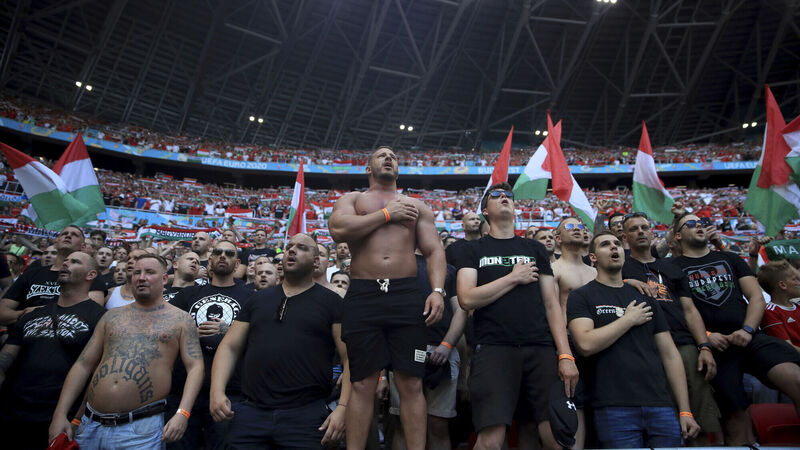Daniel Storey: Not every underdog story should warm our footballing souls

Hungary fans listen to the national anthem at the Ferenc Puskas Stadium in Budapest. On Saturday, vast swathes of their support wore black t-shirts. (Alex Pantling, Pool via AP)
After 90 minutes, all was serene. England had beaten the second seed in Group D and with it virtually guaranteed passage to the knockout stages with two games still to play. One game later, the country has been plunged into its customary angst. It is a wearing, draining cycle of hope and disappointment.









